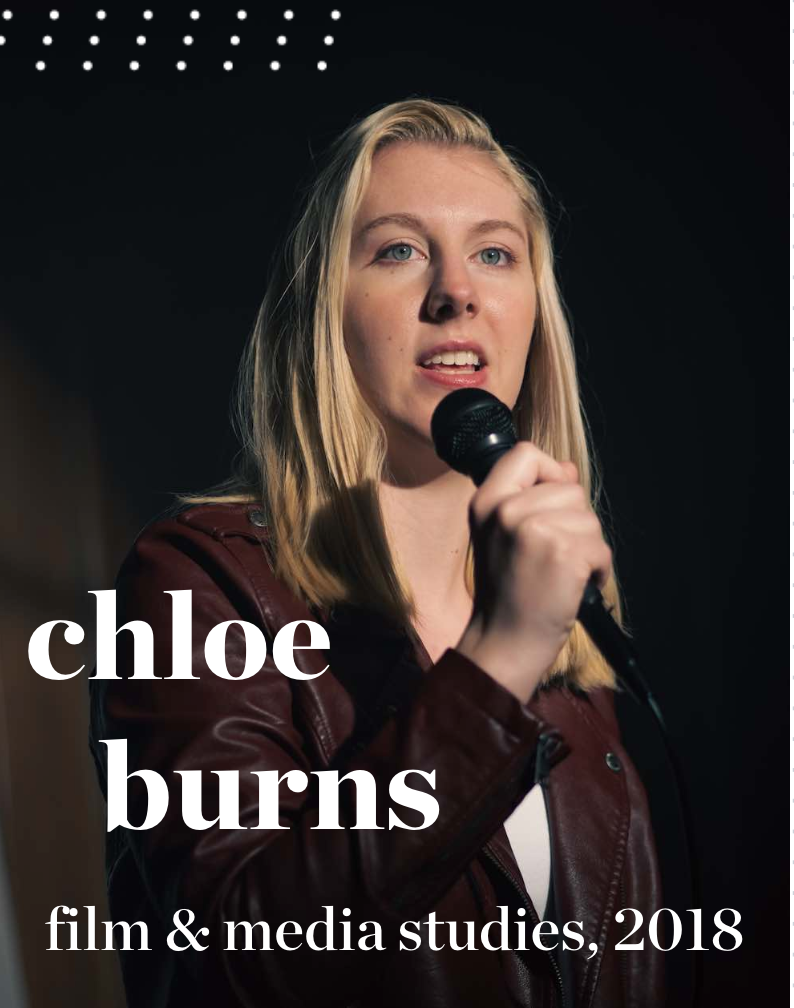
Lights, camera, action. This may seem like a cliché beginning to an interview with a film major, but it is an apropos description of the in-progress career trajectory that this month’s Hawk to Watch has taken:
Lights: Chloe Burns discovers a career in film is possible.
Camera: She moves to Hollywood and joins the film industry.
Action: She writes, produces, and stars in her own web-series, Trauma Bonded.
After graduating with a Film & Media Studies degree in 2018, Chloe lived the film student dream of moving to Los Angeles and working in the industry. That is, until the pandemic brought the world to a halt. No industry was hit harder than film, leaving less-established workers in the dust.
And call it what you want — something cliché again (sorry), like “fate” — but when Chloe made the trek back to Kansas after COVID brought Hollywood to its knees, she took her talent, time, and energy and put it into a project that would become her magnum opus and a defining moment in her burgeoning career.
I was lucky to catch up with Chloe Burns and talk to her about how she realized a future in film was possible, her reflection on the pandemic’s impacts on her and her career, and what she sees in store for her future. Read on to see why Chloe is a Hawk to Watch.
Tell us in a sentence or two what you do for a living:
Day job (makes me money to live): Communications manager for a regenerative agriculture company.
Career pursuits (hoping to make me money in the future): Writing, producing, and acting in film & television.
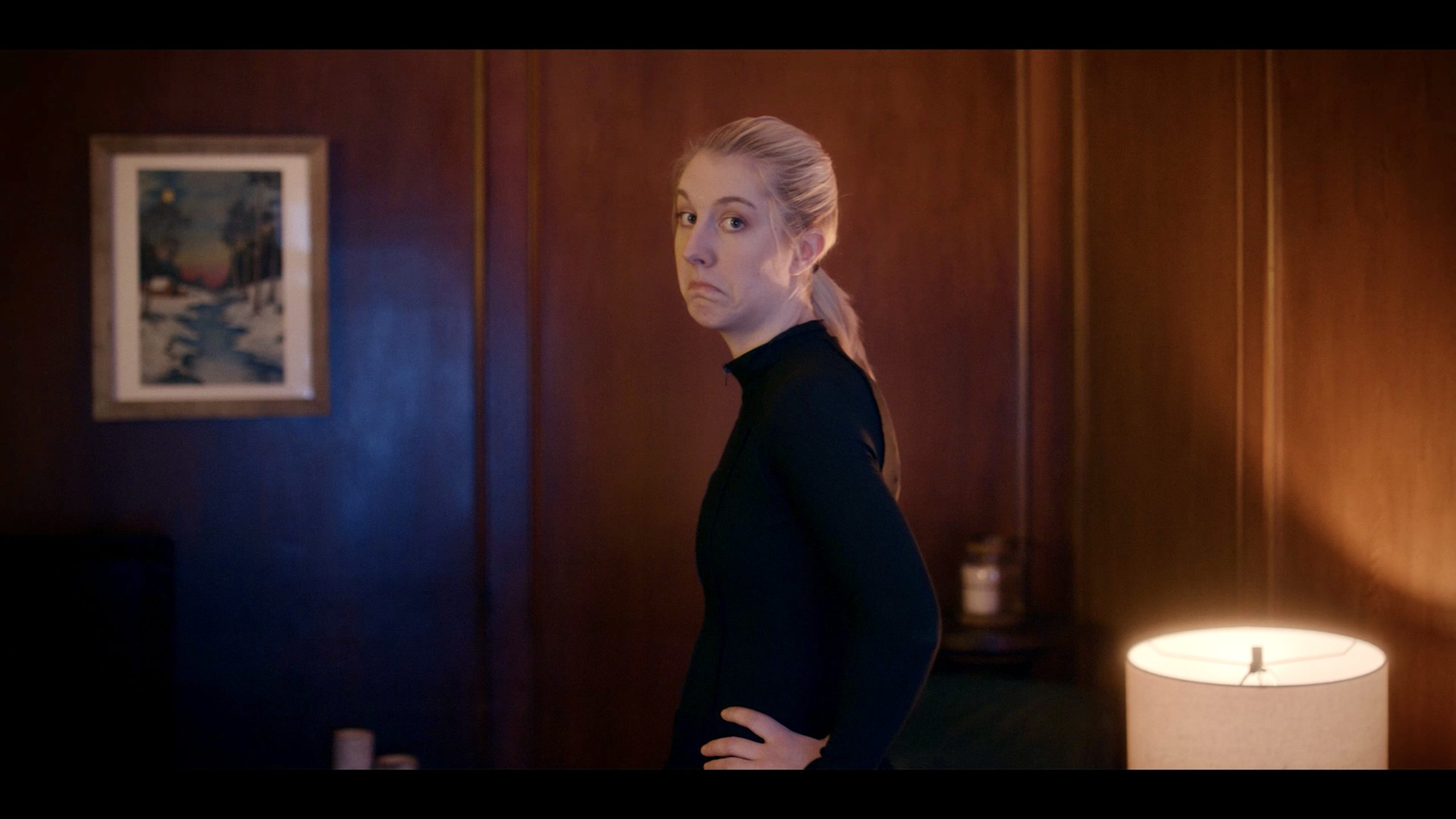
How did you end up doing what you do? Was there a certain moment when things came together, or was it a longer journey?
I originally came into the world of film through video editing, which I discovered as a kid using iMovie on my family’s shared desktop computer, downloading clips from my favorite shows and movies and cutting them into montages. As I got older, I started roping my friends into filming what I had written, complete with behind-the-scenes actor interviews. However, the journey to majoring in film was a longer one, as I had never seen a clear pathway to making it a viable career.
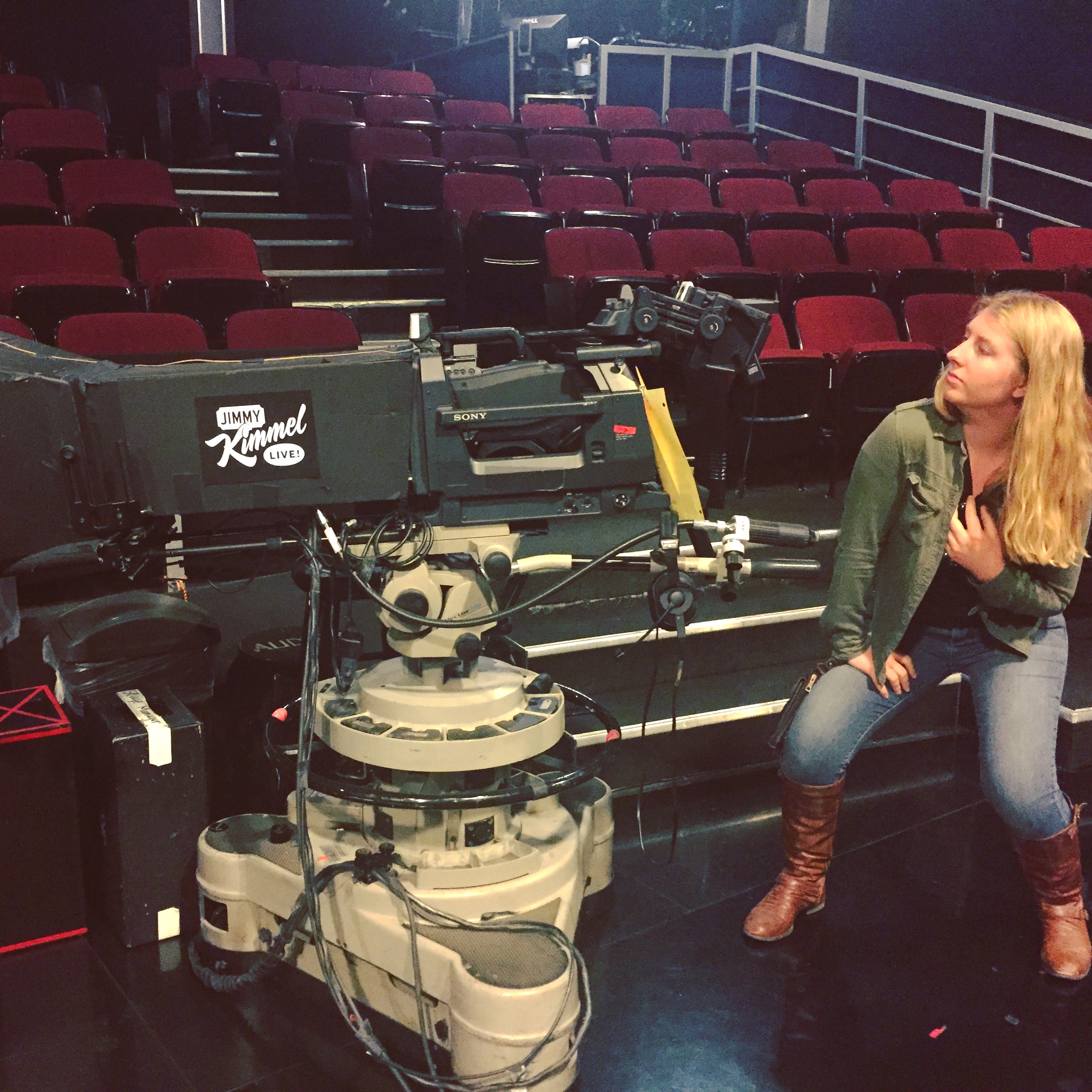
I transferred to KU from a junior college, where I had obtained my Associate’s Degree studying Sociology and Anthropology. I was beginning to struggle with the idea of a career spent in the social sciences, and it was on my mom’s suggestion that we tour the KU Film School. That day opened up an entirely new world for me, because it was the first time I saw film as a path that I could pursue; not just a hobby that was destined to stay that way because I wasn’t raised in California.
Although there have been fluctuations since then (anyone who doesn’t experience a post-graduation identity crisis has my envy), when I think back to a certain moment where things came together, it is that first tour of the film department.
How did your KU degree prepare you for your current job?
I think context is everything. Growing up in a part of the country where entertainment is not a prominent industry introduces significant limitations, especially when resumes and qualifications alone provide few guarantees. The value for me in a KU Film Degree has been the combination of practical experience and supportive relationships. The experience of working on set and producing content with thoughtful guidance has advanced my creative work significantly, and the mentorship from professors and network of peers post-graduation has been invaluable.
I also have an appreciation for the multi-faceted approach of the KU Film Department, where it is not possible (or at least very difficult) to remain siloed in one particular area of film. Learning how to translate, on a technical level, an artistic idea to reality is the eternal task of any filmmaker, and I think that when aspiring directors find themselves running sound, or when screenwriters are tasked with editing, they only stand to benefit from what they learn. In my experience, it has given me a shared language with the other departments I work with, and that has yielded great working relationships that I see maintaining for years to come.
What do you feel is your biggest achievement so far?
My short series, Trauma Bonded, is definitely my biggest achievement so far. It’s the third project post-graduation that I’ve written, produced, and acted in, and it’s the first one for which I’ve raised a budget. I learned how to start an LLC, interview and hire a team, and manage a creative vision from start-to-finish at a much higher caliber than I’d ever done before. It pushed me out of my comfort zone, and in return, I’ve experienced great personal and professional growth. While I’m incredibly proud of how the series turned out, I am also excited to use the lessons I learned from it to make the next one even better.
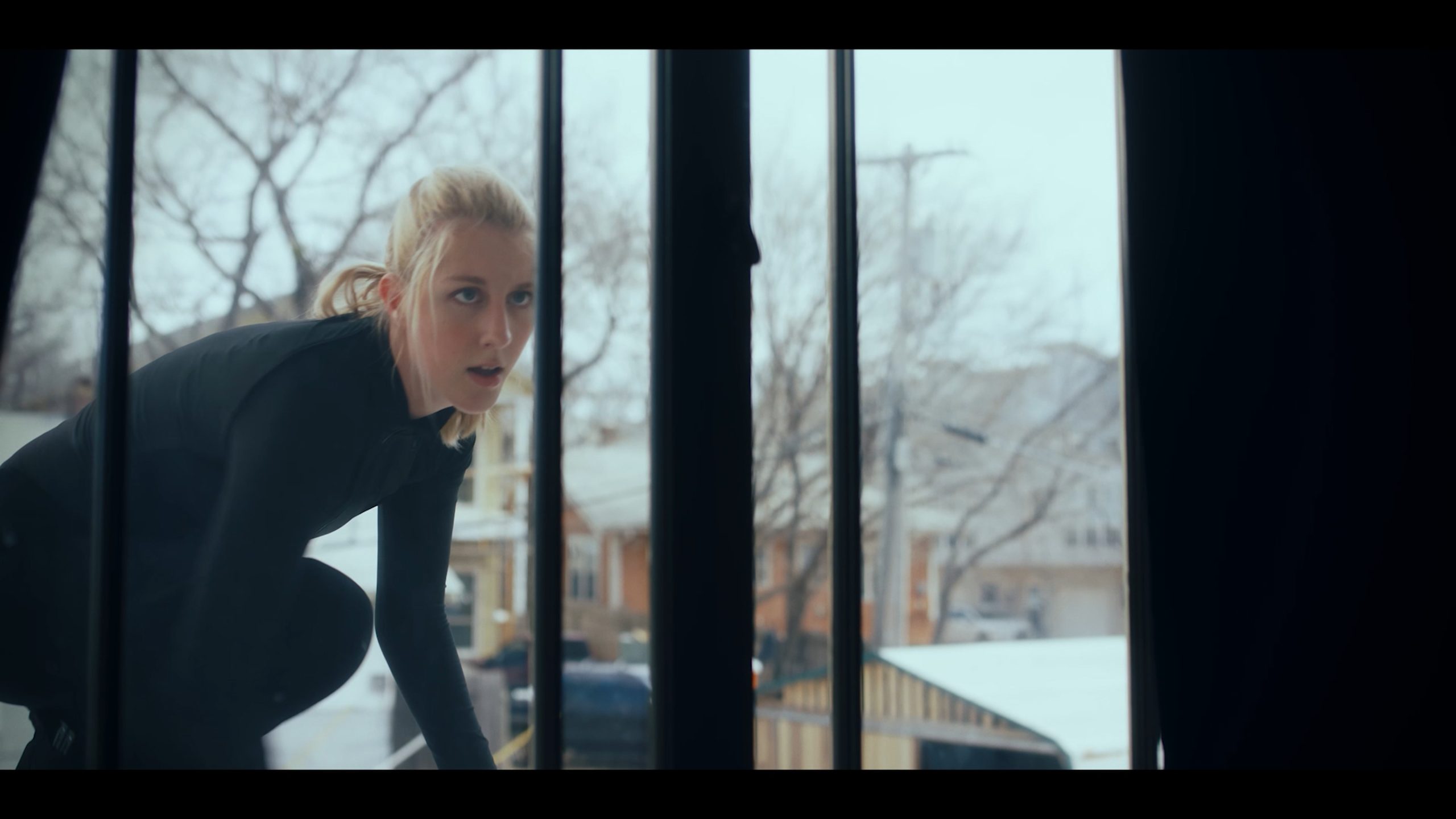
What’s your lowest career moment and how did you pick yourself up and move on?
My lowest career moment to date arrived sometime in the year 2020, after I drove back to Kansas from Los Angeles in March. I had only moved to LA nine months before, and was starting to feel the first real momentum behind me when COVID shut down the industry and all of my paying work along with it. As the pandemic dragged on, I felt all of that momentum dissipate, and I started to feel like it might not be possible to get back.
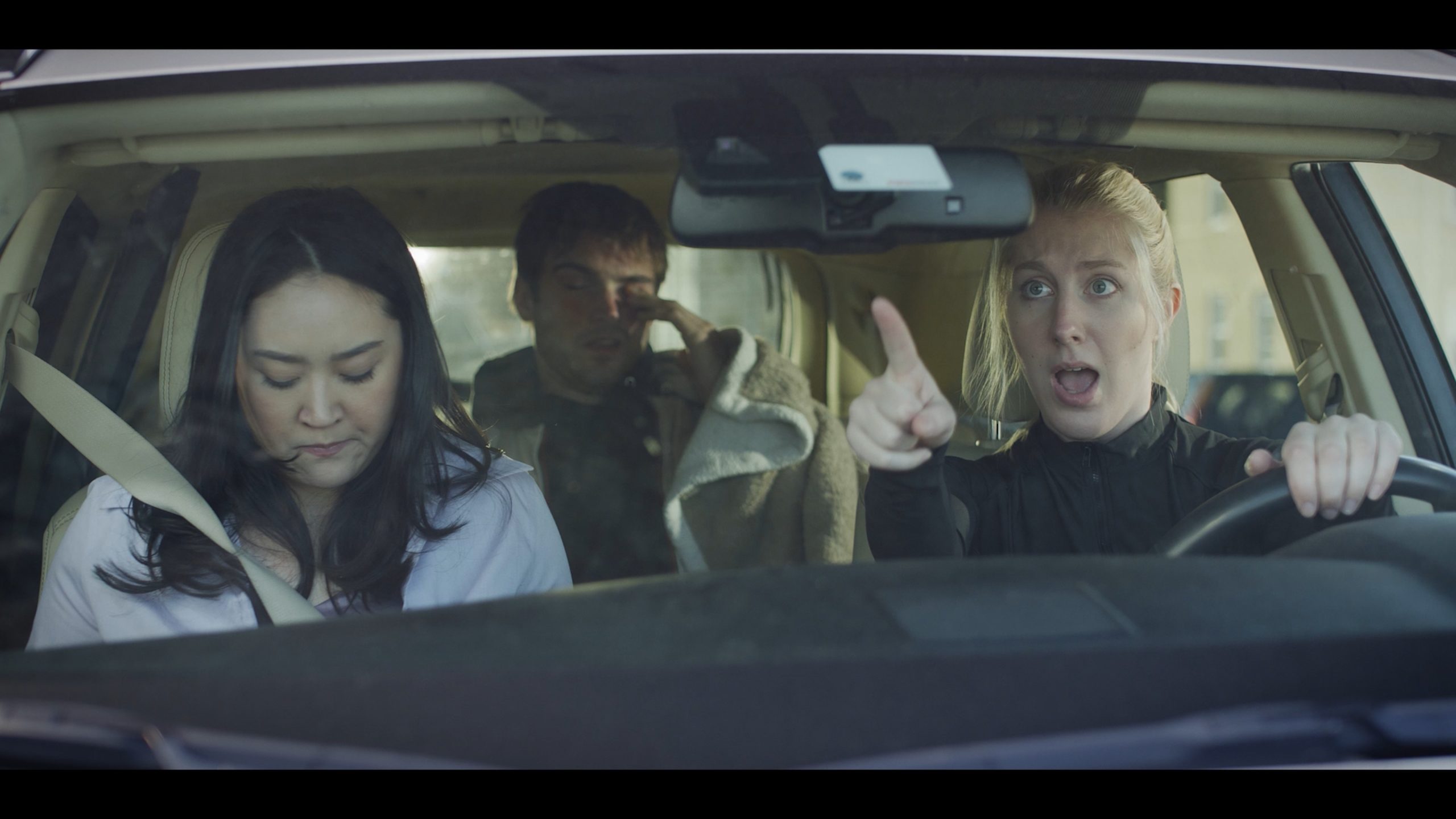
My fear of total career stagnation is what ultimately pushed me to write and produce Trauma Bonded, not out of long-term strategy so much as pent-up nervous energy with nowhere to go. What I gained from this was more than the series itself; taking action was also a much-needed reminder that while there are a lot of aspects to creating a successful career (networking, promoting, strategizing, to name a few), genuine love for the work is the through line.
I now know when I encounter that gnawing “Am I doing enough?” thought, that’s a good day to engage with the pieces of art and film that made me want to pursue it in the first place.
Where do you hope to be in 10 years?
In 10 years, I hope to be embarking on a new project that feels just out of reach enough to be exciting. I also hope to have built a wide and supportive network of trusted peers, I hope for the resource and knowledge to create something audiences will feel impacted by, and I hope for a better home office that doesn’t share space with my bedroom or the laundry machines.
What do you know now that you wish you could tell your 18-year-old self?
All of those experiences you are collecting as you search for what you want out of life, as random and inconsequential as they seem, are exactly what you are meant to be doing. I would say “Don’t be anxious; just have fun,” but I know you because you’re me, so instead I’ll say, “Learn to ride these waves and know that they will pass.”
What’s your best career pro-tip?
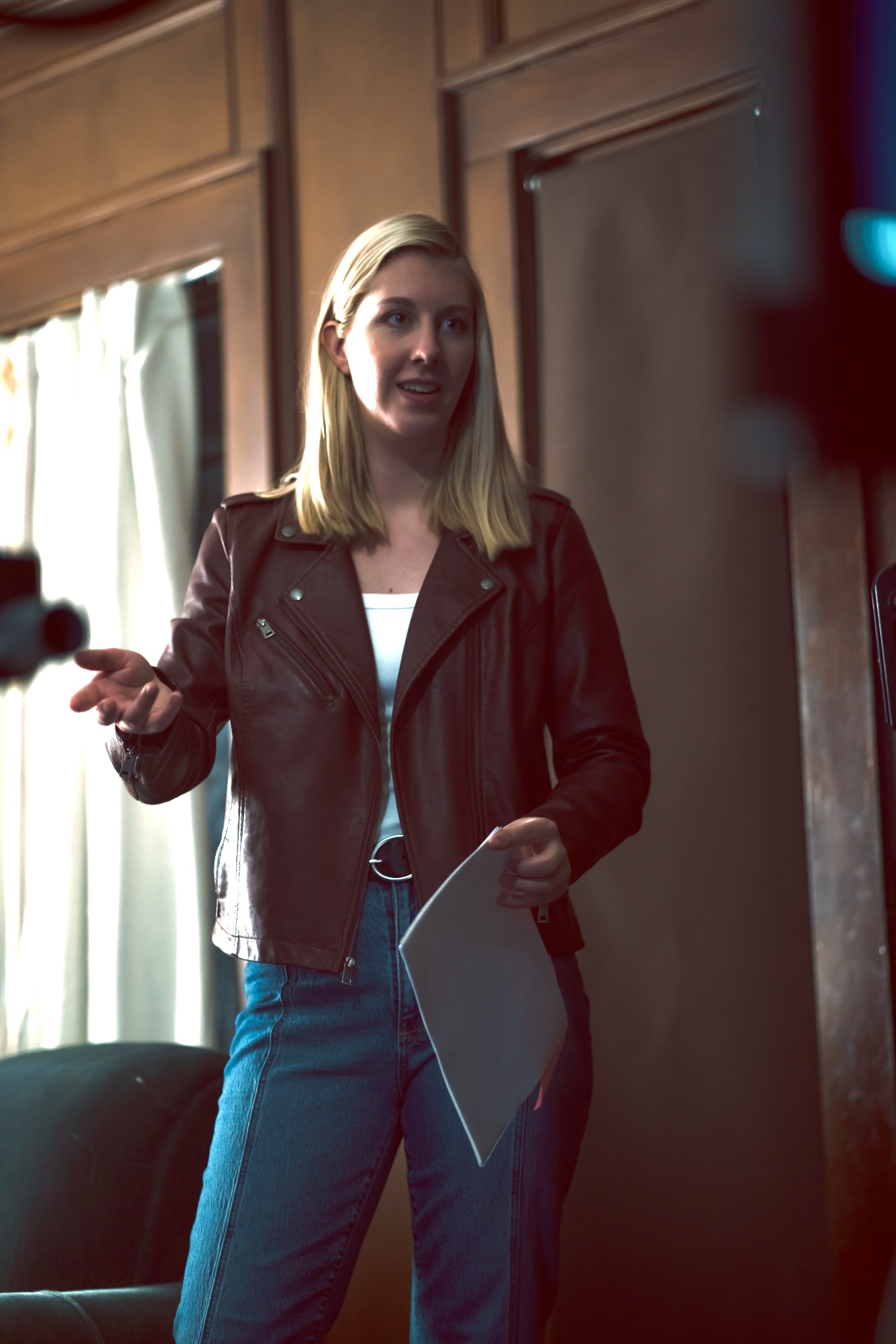
The more specific the question, the more useful the answer.
Examples:
- Calling SAG to ask about actor contracts = “Check our website.”
Calling SAG to confirm whether Section C of the Micro-Budget contract allows for a non-union actor to be considered “Sag-E” = “Good question! No.” - “What advice would you give to a recent grad?” = “Know yourself and have fun.”
“I have a script that I’m considering crowdfunding for, but I’m not sure if my estimated budget is accurate. I used a template to sketch it out, would you mind taking a look and seeing if you agree with the final number?” = “Yes – double it.”
What do you do after you’ve clocked out?
Play guitar, paint, play solitaire, tend to my houseplants, and re-watch House.
What is a fun fact about you that surprises people?
My film coworkers have made (good-natured) fun of my “farm backstory,” which comes from the fact that I was raised working on the family farm. I wouldn’t say this fact alone surprises people who have known me for more than ten minutes, but the combination of skill sets I learned (welding, how to repair a saddle with a shoelace) and experiences I’ve had as a result of that upbringing make for great stories and old-timey-sounding metaphors, which I use very often.
Meet more of our Hawks to Watch. For more information on film and media at the College, visit the Department of Film & Media Studies at the University of Kansas. Visit Chloe’s website to see more of her work.